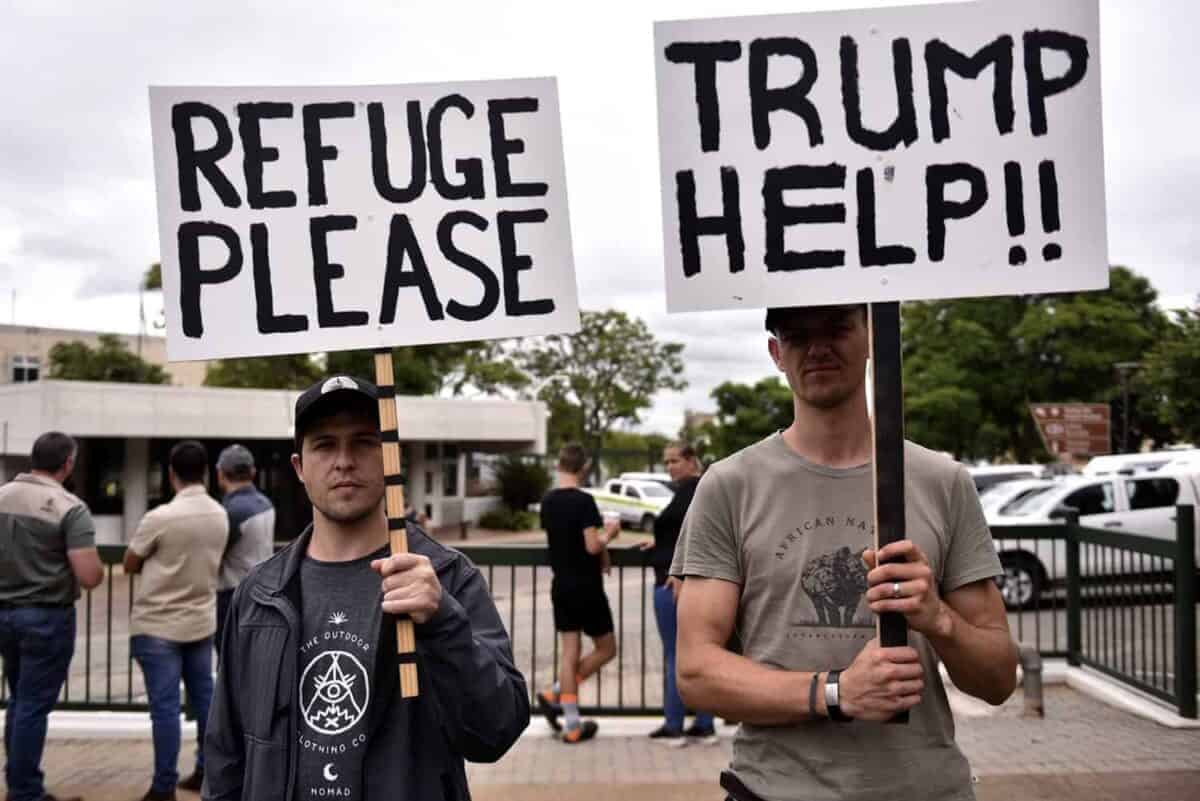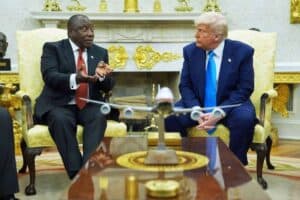Despite all the corruption, crime and contradictions, South Africa is still a lekker country.

Sometimes Afrikaners are their own enemy and not always as lekker as they claim to be… and that comes from me who is, technically, one of them, albeit not spiritually or politically.
First, the khaki-clad Afrikaners from the cities cried about the terrible things happening in South Africa, then they mobilised and marched to the US embassy – only to miss their one-way ticket as a refugee to the promised land of America.
One cannot help but wonder then what the big commotion was all about?
Earlier this week, a handful of Afrikaans writers were accused of being in cahoots with the ANC and being “volksverraaiers” (traitors to the volk).
This follows after the ANC welcomed and saluted what they described as a courageous stance taken by Afrikaans-speaking South Africans who authored and co-signed an article, Not in our Name: Afrikaners Respond to the Misuse of Their Story in US Politics, which was published by News24.
Don’t get me wrong, I enjoy a catfight between top dogs in the headlines, but I couldn’t help but wonder why the civil rights organisation was taking on their own people just because they had different opinions about the politics in the country.
Afrikaners are known as Christians who speak Afrikaans, like to braai on a Friday, watch rugby on a Saturday and go to church on a Sunday… and some have somewhat conservative opinions and reservations.
How do we tell some quarters of the public that many Afrikaans-speaking white people don’t really have an interest in immigrating to America – except, of course, for Peet and Melany Viljoen, or the three out of 50 Afrikaners who actually pitched up to board the latest US government-sponsored refugee airlift.
ALSO READ: Afrikaners reject misuse of their story in US politics
That’s not so surprising, considering that older ooms still refuse to speak English with the classic excuse: “Jy praat Afrikaans of hou jou bek” (speak Afrikaans, or shut up).
How will Oom Koos from Kroonstad survive in America, where the first language is English?
While I am Afrikaans born and bred, I do not share the sentiments of either the fleeing Afrikaners or the old-school ones.
I consider myself a modern, or alternative Afrikaner – perhaps even Mengels – slang for a mix of Afrikaans and English.
I am not paranoid about a looming “nag van die lang messe’ (night of the long knives), I don’t believe in “visionary” Siener van Rensburg’s conspiracies and I am not planning to immigrate any time soon.
I don’t dress in khaki, or hide AWB or Vierkleur flags in my closet. I also don’t refer to people of colour as “them” or make racial comments around a braai.
More than three decades into democracy, people are still making racial slurs. And they complain about everything – from B-BBEE and unemployment, to the government.
ALSO READ: ‘Not in my name’ Afrikaners display courage
The biggest problem is that Afrikaners, even the watered-down modern Afrikaners, are not united and don’t stand together.
Seeing Afrikaners marching or protesting about something they care about is now a once in a blue moon event.
No Bela Bill march could fill up Loftus like they do during a Currie Cup final, or Gelofte Dag (Day of Reconciliation) at the Voortrekker monument, with 35 000 visitors on 16 December.
Why were there only three Afrikaners who pitched up to relocate to the US?
Where were the thousands of unhappy Afrikaners who were fearing for their lives in this dangerous country?
Perhaps it’s because life in America isn’t as delicious or lekker as in South Africa.
Despite all the corruption, crime and contradictions, it’s still a lekker country. Amandla.
NOW READ: ‘US does not care for Afrikaners,’ university historian says [VIDEO]






